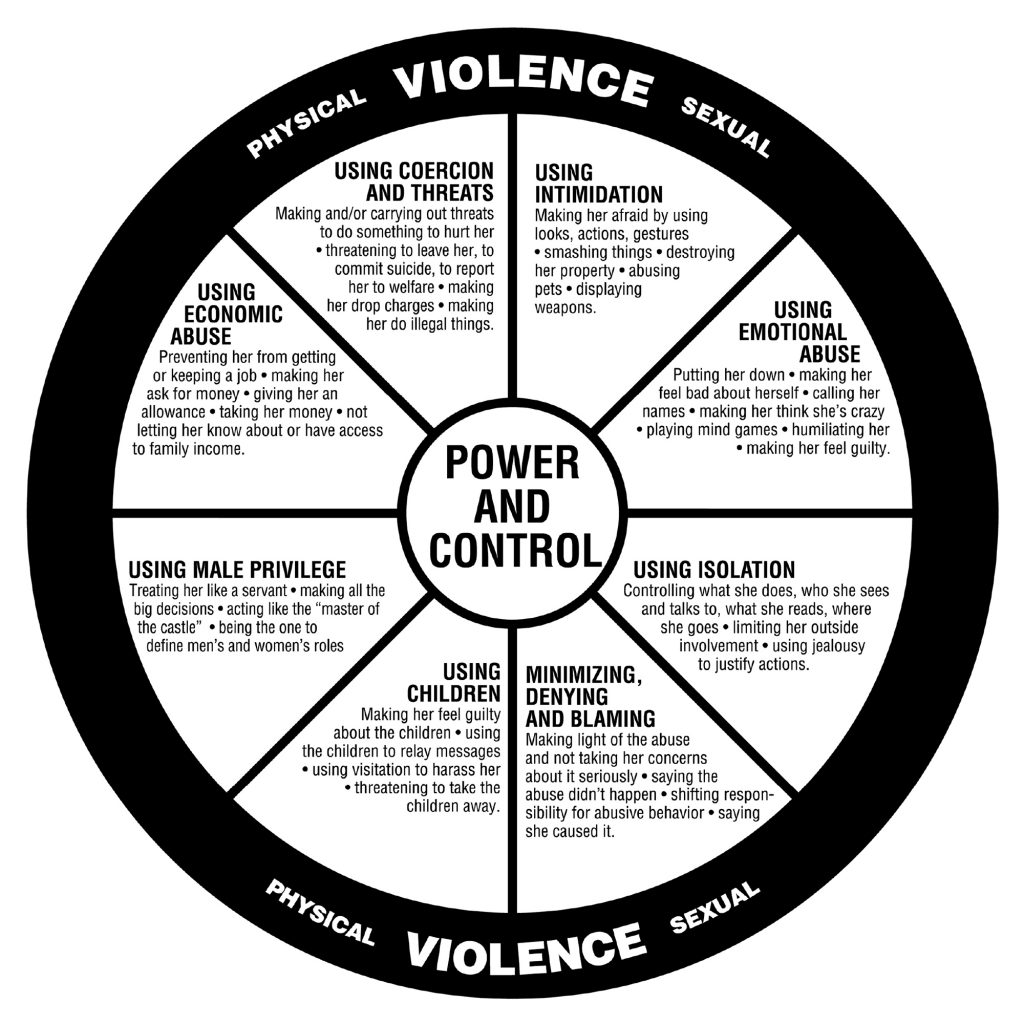Power and Control Wheel
Developed by Domestic Abuse Intervention Project, Duluth, MN
Physical and sexual assaults, or threats to commit them, are the most apparent forms of domestic violence and are usually the actions that allow others to become aware of the problem. However, regular use of other abusive behaviors by the batterer, when reinforced by one or more acts of physical violence, make up a larger system of abuse. Although physical assaults may occur only once or occasionally, they instill a threat of future violent attacks and allow the abuser to take control of the woman’s life and circumstances.
The Power and Control diagram is a particularly helpful tool in understanding the overall pattern of abusive and violent behaviors, which are used by a batterer to establish and maintain control over his partner. Very often, one or more violent incidents are accompanied by an array of these other types of abuse. They are less easily identified, yet firmly establish a pattern of intimidation and control in the relationship.

USING INTIMIDATION
- Making her afraid by using looks, actions, gestures
- smashing things
- destroying her property
- abusing pets
- displaying weapons
USING EMOTIONAL ABUSE
- Putting her down
- calling her names
- making her think she’s crazy
- playing mind games
- humiliating her
- making her feel bad about herself
- making her feel guilty
USING ISOLATION
- Controlling what she does, who she sees and talks to, what she reads, where she goes
- limiting her outside involvement
- using jealousy to justify actions
MINIMIZING, DENYING, AND BLAMING
- Making light of the abuse and not taking her concerns about it seriously
saying the abuse didn’t happen - shifting responsibility for abusive behavior
- saying she caused the abuse
USING CHILDREN
- Making her feel guilty about the children
- using the children to relay messages
- using visitation to harass her
- threatening to take the children away
USING MALE PRIVILEGE
- Treating her like a servant
- making all the big decisions
- acting like the “master of the castle”
- being the one to define men’s and women’s roles
USING ECONOMIC ABUSE
- Preventing her from getting or keeping a job
- making her ask for money
- giving her an allowance
- taking her money
- not letting her know about or have access to family income
USING COERCION AND THREATS
- Making and/or carrying out threats to do something to hurt her
- threatening to leave her, to commit suicide, to report her to welfare
- making her drop charges
- making her do illegal things
KANSAS CRISIS HOTLINE: 888-END-ABUSE | 888-363-2287